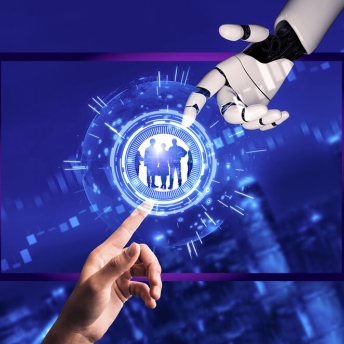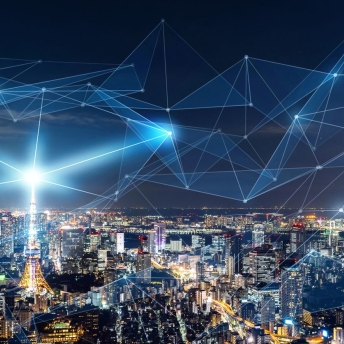Maximilian Scherr
With over 20 years of experience in consulting and senior management, Max helps clients across industries with growth and group strategies, digital transformation, information security and ESG.

Areas of Focus
Education
Past Experience

Max is a Partner at Arthur D. Little and leads the Strategy, Organization & Innovation practice in our Vienna office.
Max has over 20 years of experience in strategic consulting and senior management positions across Europe, the Middle East, Africa, and the US, and has worked across several industries (e.g., telecom, oil & gas, travel & transportation, advanced manufacturing, public sector, pharma, and consumer goods).
He mainly helps clients in growth and group strategies, digital transformation, and information security. In addition, he is responsible for our ESG/energy transition work in Austria, particularly for industrial companies, and is a regular speaker on innovation and ESG topics.
Max is married and lives with his wife and daughter near Vienna. In his free time, he likes to spend time with his family and participate in many different kinds of sports (e.g., mountain biking, stand-up paddling, and skiing) and modernist cuisine “cooking” with family and friends.

AI in cybersecurity

Optimistic global CEOs focus on people and skills in an AI future

Positive in an uncertain world: Confident CEOs reskill companies for AI-driven growth

The cyber battlefield

Embracing uncertainty, driving growth

Turning Turmoil to Advantage: How CEOs Are Navigating Change to Drive Growth

Postal operators: The need for transformation and corresponding strategic moves


Is your city ready to go digital?

Max is a Partner at Arthur D. Little and leads the Strategy, Organization & Innovation practice in our Vienna office.
Max has over 20 years of experience in strategic consulting and senior management positions across Europe, the Middle East, Africa, and the US, and has worked across several industries (e.g., telecom, oil & gas, travel & transportation, advanced manufacturing, public sector, pharma, and consumer goods).
He mainly helps clients in growth and group strategies, digital transformation, and information security. In addition, he is responsible for our ESG/energy transition work in Austria, particularly for industrial companies, and is a regular speaker on innovation and ESG topics.
Max is married and lives with his wife and daughter near Vienna. In his free time, he likes to spend time with his family and participate in many different kinds of sports (e.g., mountain biking, stand-up paddling, and skiing) and modernist cuisine “cooking” with family and friends.

AI in cybersecurity

Optimistic global CEOs focus on people and skills in an AI future

Positive in an uncertain world: Confident CEOs reskill companies for AI-driven growth

The cyber battlefield

Embracing uncertainty, driving growth

Turning Turmoil to Advantage: How CEOs Are Navigating Change to Drive Growth

Postal operators: The need for transformation and corresponding strategic moves


Is your city ready to go digital?
More About Maximilian
- Vienna University of Economics and Business AdministrationMaster
- Telekom DeutschlandVice President, Executive Board Member of Deutsche Telekom Technischer Service
- McKinsey & Company, Inc.
